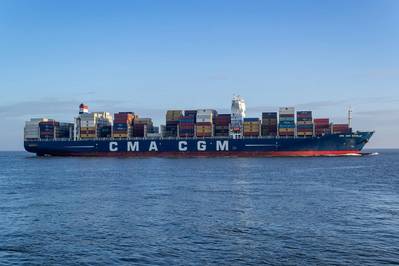CMA CGM Reroutes More Ships to Avoid Red Sea Attacks
One of the world's largest container shipping groups CMA CGM on Friday said it would reroute a weekly service between Europe and Australia to avoid attacks in the Red Sea, and that the company expected months of disruption.
Attacks by Yemen's Houthi militia on commercial vessels, in response to Israel's war with Palestinian Hamas militants in Gaza, have slowed trade between Asia and Europe, and U.S. strikes against the Houthis have not resolved the crisis.
French-based CMA CGM said its weekly NEMO service connecting Europe, the Indian Ocean and Australia will temporarily go via the Cape of Good Hope rather than the Suez Canal.
The change was part of contingency measures on several services that usually cross the Suez Canal, CMA CGM said in a customer advisory on its website.
The company on Dec. 26 said it planned to increase gradually the number of its vessels crossing the Suez Canal, which connects with the Red Sea at its southern end.
In an article published by the Financial Times on Friday, Chairman and CEO Rodolphe Saade said the company was still sending some vessels through the Suez Canal route if the vessels could be accompanied by a French warship.
French forces patrolling the Red Sea are focused on escorting French-linked vessels, a navy commander said last week.
But other CMA CGM ships were being sent via southern Africa as the Red Sea tensions had left the company's schedule "in complete disarray," Saade told the Financial Times.
In further signs of disruption, CMA CGM has this week announced charges to carry empty containers from Turkey towards Europe, the Mediterranean and North Africa, while also modifying some of its rotations around the Mediterranean.
After Danish rival Maersk said on Wednesday the disruption to global shipping will probably last at least a few months, Saade told the FT that CMA CGM was anticipating "several months" of snags.
Maersk also said on Friday it was temporarily suspending bookings for Djibouti on some services due to security concerns.
(Reuters - Reporting by Gus Trompiz, editing by Tassilo Hummel and Barbara Lewis)















